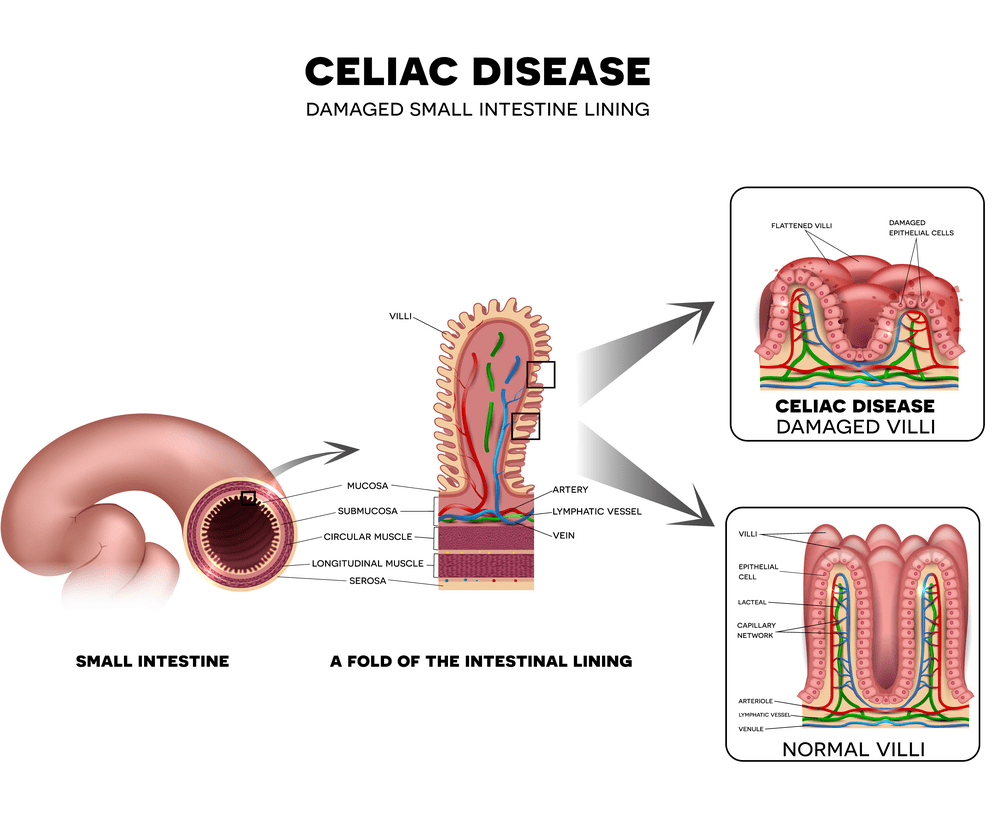Compared to other food allergies, gluten allergy has different factors that contribute to an individual’s reaction to this substance. Most people with food allergies often exhibit similar symptoms but with gluten allergy, there are differences in the symptoms that could tell the individual the underlying cause of his/her allergy to this substance.

Gluten Allergy Symptoms
People who are only allergic to wheat often exhibit the following symptoms:
- Irritation of the mouth
- Irritation of the throat
- Hives and rashes
- Stuffy nose
- Irritation of the eyes
- Difficulty in breathing
- Nausea and vomiting
- Diarrhea
The symptoms above are associated with individuals whose immune system deems wheat as a threat, but there are other individuals with other underlying diseases that exhibit other symptoms when they ingest gluten.
People who have celiac disease have a different reaction when they ingest gluten. When an individual has celiac disease their immune system reacts violently to gluten and it releases antibodies that target and destroys the body’s villi. Villi are finger-like structures that are found in the walls of the small intestines. Their purpose is to absorb the nutrients from the food that you eat.

When you have celiac disease your immune system starts destroying those villi, which can result to malnutrition. Celiac disease can also lead to permanent damage of your intestines so it is very important to consult a physician to determine if you are suffering from this condition.
People with celiac disease often exhibit the following symptoms after ingesting gluten:

- Stomach pain
- Abdominal bloating and gas
- Nausea and vomiting
- Chronic diarrhea
- Constipation
- Pale and foul-smelling stool
Children who have celiac disease can exhibit the following characteristics:
- Delayed puberty
- Weight loss
- Defects in the enamel
- Irritability
- Short stature
- Undernourishment
Adults who have celiac disease often exhibit the following symptoms/characteristics:
- Fatigue
- Anemia
- Osteoporosis
- Pain in joints
- Depression
- Infertility
- Frequent miscarriages
- Tingling in the hands and feet
There is another form of disease related to gluten, but it is a much harder disease to diagnose since most of the patients who have complained of experiencing certain symptoms (headaches, abdominal pain, mental fatigue, bloating) did not show any allergic reactions to gluten and their test results also didn’t reveal that they have celiac disease.
What these individuals have is called Non-Celiac Gluten Sensitivity (NCGS) and though they’re not allergic to wheat or gluten and though they don’t have celiac disease they still experience debilitating reactions after ingesting this substance.
Treatment

Fortunately, due to the increasing number of people with celiac disease and gluten allergy a lot of food manufacturing companies are producing foods without gluten in it. Restaurants as well have started to eliminate gluten in some of their foods so it’s easier now to find a place to eat where it is safe for you. Avoidance is the best treatment for someone who suffers from gluten allergy or celiac disease. So check food labels to see if the food you’re about to eat has gluten in it and check with the restaurant you’re visiting if they serve gluten-free food.





